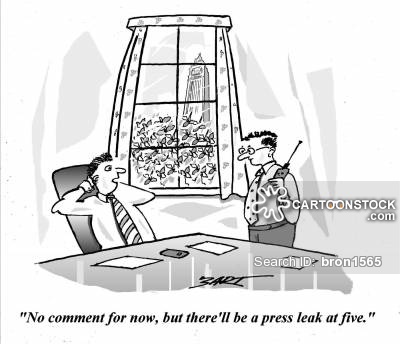
Roman poet Juvenal wrote “Quis custodiet ipsos custodies?” which loosely translated says “Who will guard against those who guard us?”
Given the FBI’s somewhat suspect handling of the investigation of President Donald J. Trump’s alleged collusion with the Russians in his election, in which Special Counsel Robert Muller III concluded there was no collusion, many pundits are applying Juvenal’s question to the FBI and the U.S. Justice Department.
As a 40-year professional journalist, having covered Washington, DC for 20 of those years and five years in Washington, DC itself, I think journalists need to apply Juvenal’s question to the media.
Unless you’ve worked as a journalist in Washington, DC, most of the public in general and journalists in particular don’t know that news gathering in Washington, DC always has been a bit suspect and not just the last couple of years with the Trump Administration.
Washington, DC attracts the most talented and competitive journalists in the country. I say this having worked in journalism in San Francisco, Chicago, New York City, Philadelphia and Washington, DC.
Reporters in Washington compete for leaks. Politicians, lobbyists, bureaucrats, regulators, law enforcement and intelligence are highly adept in dealing with the media. They leak primarily to get their spin on information or disinformation. As a journalist I was often presented with a choice piece of information, usually focused on doing damage to someone or some agency. Ethical journalists do not published leaks unless corroborated by at least two other knowledgeable sources.

But if as a reporter you tell a highly placed leaker you need to check out what they leaked to you, many leakers go to other reporters who just publish it and pretend to their editors they have other sources corroborating the information. It’s easy to have other sources. They too have a special interest in the information being leaked and will quickly agree the information is true whether it is or not.
Now ethical journalists don’t do this and the majority are ethical. But my experience in Washington is that the ethical ones have to work several times harder as the unethical journalists because the ethical journalists generally aren’t receiving leaks.
It doesn’t surprise me that Woodward and Bernstein broke the Watergate scandal with the aide of “Deep Throat,” a high-ranking FBI official. Nor does it surprise me that Bob Woodward worked for U.S. Naval Intelligence prior to becoming a reporter. And that he had less than two year’s experience as a reporter prior to being assigned to cover the Watergate story. To its credit, the Washington Post did not print articles by Woodward and Bernstein that were not corroborated by unimpeachable sources. And it took years.
Now I am certain President Richard Nixon needed to be taken down. But I am suggesting that without an intelligence source (or sources) helping Woodward and Bernstein it would never have happened.
I am also suggesting that well-documented indications are that the FBI and some Department of Justice and intelligence agency people were very much interested in taking down Donald Trump even before he was elected. And after he was elected, they did everything in their power to undermine his presidency including leaking to the media erroneous information damaging to the President, his Administration and his family.
My criticism, however, is with my own profession, The Fourth Estate. I believe some think that journalists need to listen to leakers but their hatred for Trump caused them not to check out the validity of the leak. They just published it; their mantra Resistance. As journalists, we are guardians of our democratic republic. Our mantra must always be seeking truth truthfully.

Stanford Erickson is a regular contributor to Vero Communiqué. He lives in Vero Beach, FL and was a formerly a reporter for Hearst, bureau chief for McGraw- Hill in Washington, DC and editor in chief or Knight-Ridder in NYC. Mr. Erickson is a 40-year member of the National Press Club.
[Mr. Erickson’s comments are his own and do not reflect the point of Vero Communiqué.]
We strive to encourage a free and open exchange of opinions and welcome yours. Through discussions like these we can all learn more about the topics themselves and the perspectives of others.
Thank you for writing what needs to be read about the state of journalism today. As you point out, bad journalists putting their own interests ahead of their profession’s, give a bad name to journalism as a profession (and polling data seem to confirm this). Journalism needs to police its ranks so that the professional penalty for unethical conduct is sufficiently severe to minimize it as a future problem.
I’m wondering whether “advocacy journalism” isn’t fueling much of the decline in standards? Whether or not the consequences have been intentional or unintended, advocacy journalism allows opinionating to be passed off as “news” and that can have a devastating impact on the profession.
Let’s hope your frank commentary gets a wide distribution so that it reaches both young people looking to journalism for a profession and those whose ethics have been less than honorable.
Kudos!
Bob Webster
LikeLike